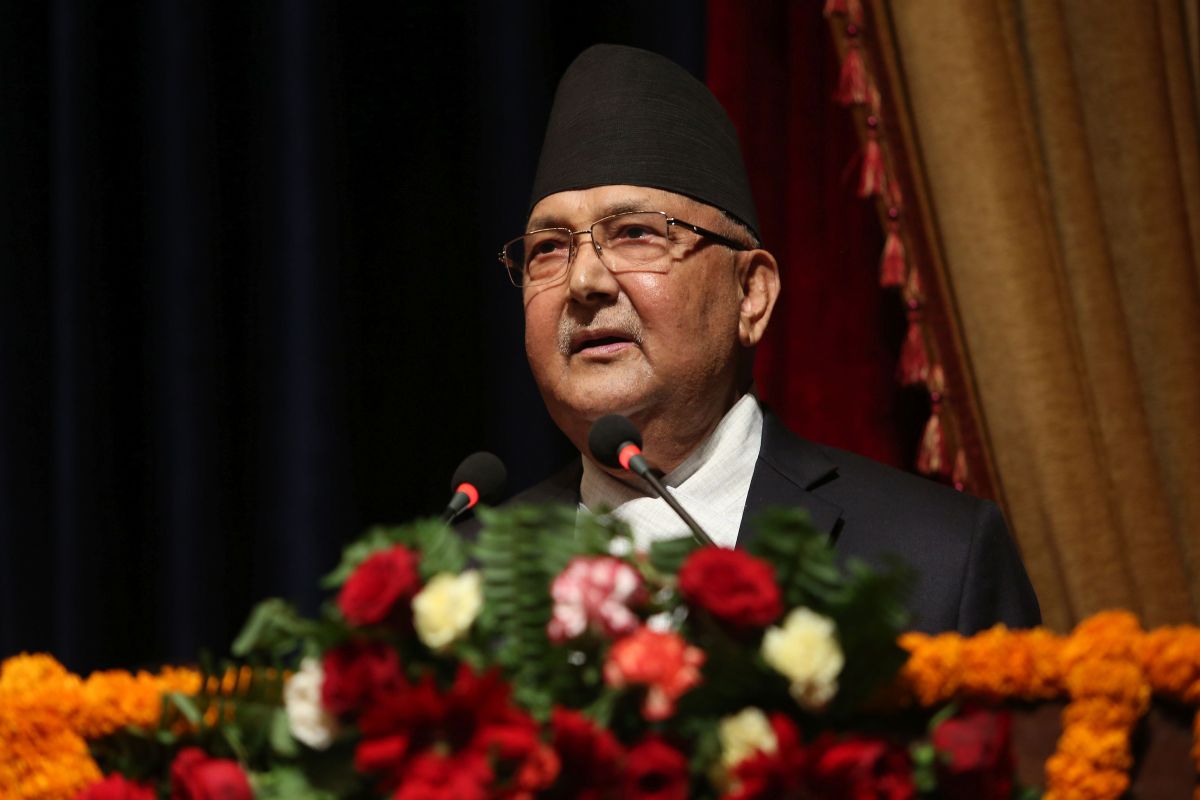Female associate of gangster held for murder of rival gang member from Indo-Nepal border
19-year-old Annu was absconding since the day of the murder and was frequently changing her hideouts across the North Indian states.
South Asia must now fervently hope that a scintilla of normalcy will return to Nepal. Hopefully once more, the putrid parties and politics of the Kathmandu court are over.

Nepal Prime Minister KP Sharma Oli (Photo: IANS)
Sunday’s victory of Sher Bahadur Deuba, in the vote of confidence in Nepal’s reinstated House of Representatives is ~ aside from a personal triumph ~ yet another major setback for his predecessor, KP Sharma Oli.
The latter had shot himself in the foot by dissolving the House of Representatives on December 20; it was subsequently reinstated by the country’s Supreme Court. And yet for more than six months, governance has been in limbo in the Himalayan country.
The outcome of the trust vote makes it clear that the legislature is anxious to ensure stability in governance. On the face of it, the win ensures the Nepali Congress leader’s tenure as Prime Minister for a year and a half, until the next elections are held.
Advertisement
Deuba received 165 votes in the 271-member Lower House. He needed 136 votes, as four lawmakers remain suspended.
Only 249 lawmakers, however, were present during Sunday’s trust vote. As many as 83 lawmakers voted against and one remained neutral.
“I hereby declare that the motion of the vote of confidence tabled by Prime Minister Sher Bahadur Deuba has been endorsed with a majority,” said Speaker Agni Sapkota.
The proposal for the vote of trust was registered in the Parliament Secretariat on Sunday itself, the very first day of the session of the House after it was reinstated by the Supreme Court on July 12.
After the six-month deadlock, developments have been remarkably swift and decisive. The Nepali Congress president was appointed as Prime Minister on July 13 as per the Supreme Court order. The Court had on July 12 overturned Mr Oli’s May 21 dissolution of the House and had ordered Deuba’s appointment as Prime Minister under Article 76 (5) of the Constitution of Nepal. President Bidya Devi Bhandari on Thursday summoned the session of the restored House for 4 p.m. on Sunday.
As per the constitutional provisions, Deuba needed to secure a vote of confidence in the House within 30 days from his appointment, specifically by August 12. But Deuba decided to seek the vote of confidence on the very first day of the session. His comfortable majority owes not a little to his Nepali Congress being joined by most other parties, notably a section of the main Opposition Communist Party of Nepal-Unified Marxist Leninist, in supporting the vote of confidence.
As many as 23 lawmakers from the Madhav Nepal faction had supported Deuba’s petition at the Supreme Court demanding his appointment as Prime Minister and restoration of the House. One lawmaker from the Nepal faction, Bhim Rawal, however, resigned on Sunday afternoon, hours before Deuba went for a floor test. Oli had dissolved the House for the second time on May 21 after President Bhandari rejected his and Deuba’s claims for the post of prime minister.
South Asia must now fervently hope that a scintilla of normalcy will return to Nepal. Hopefully once more, the putrid parties and politics of the Kathmandu court are over.
Advertisement